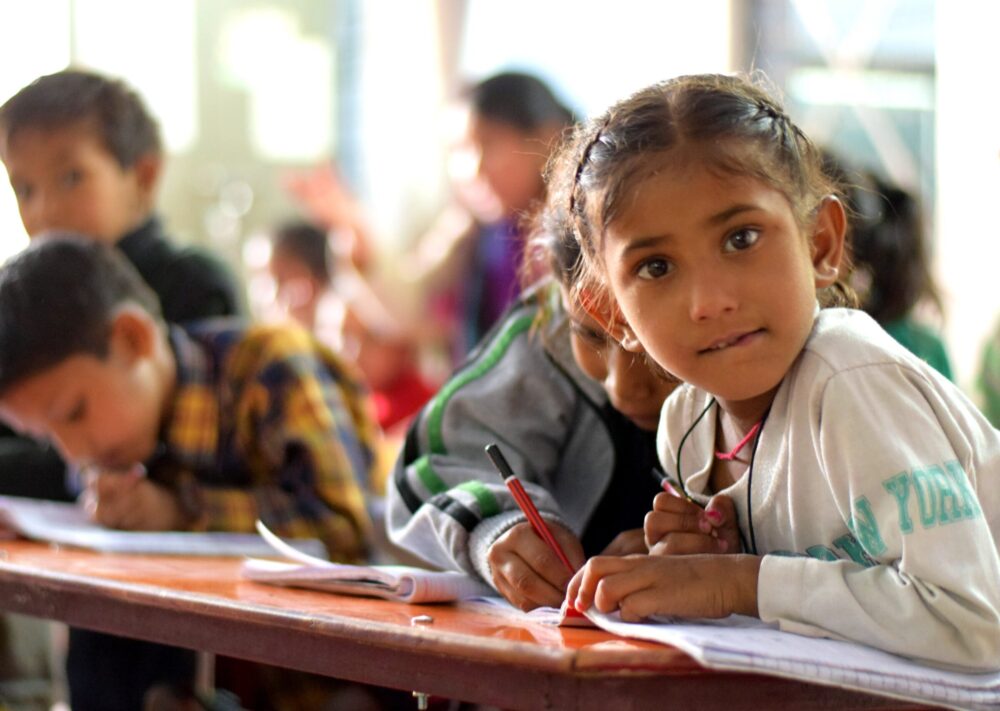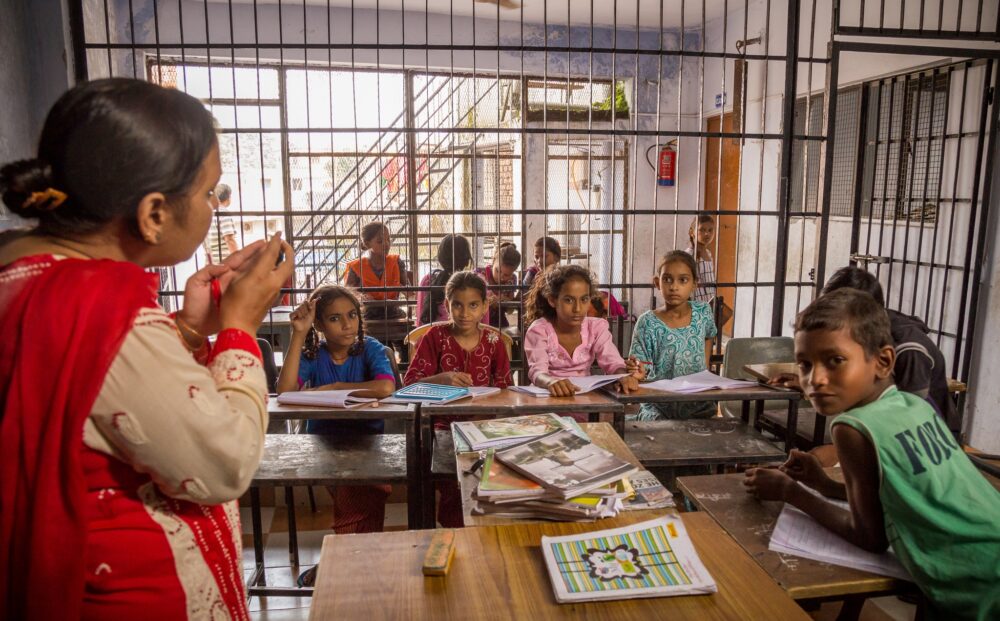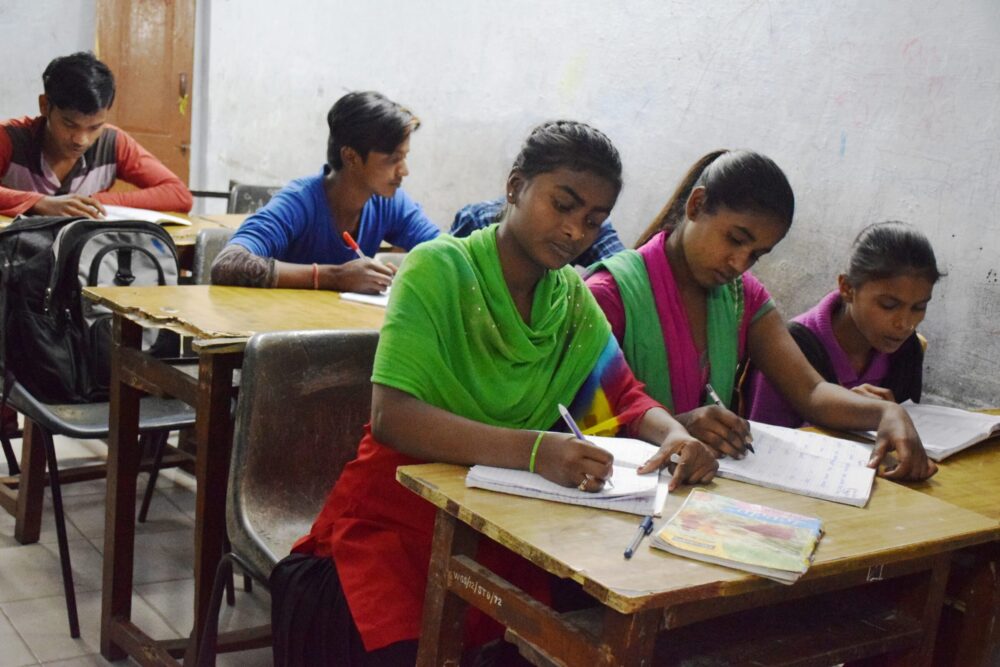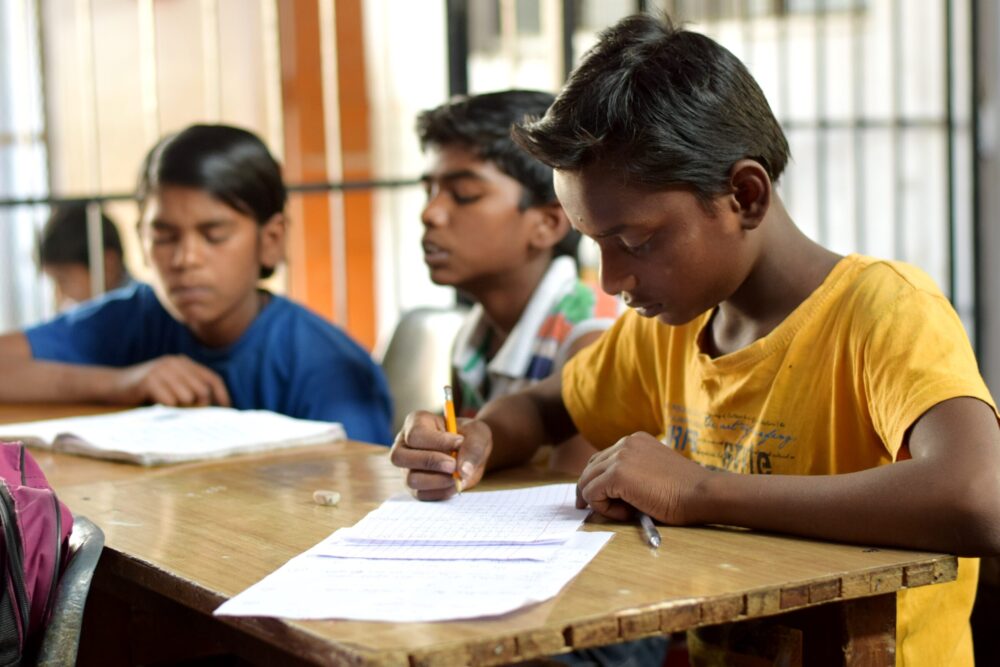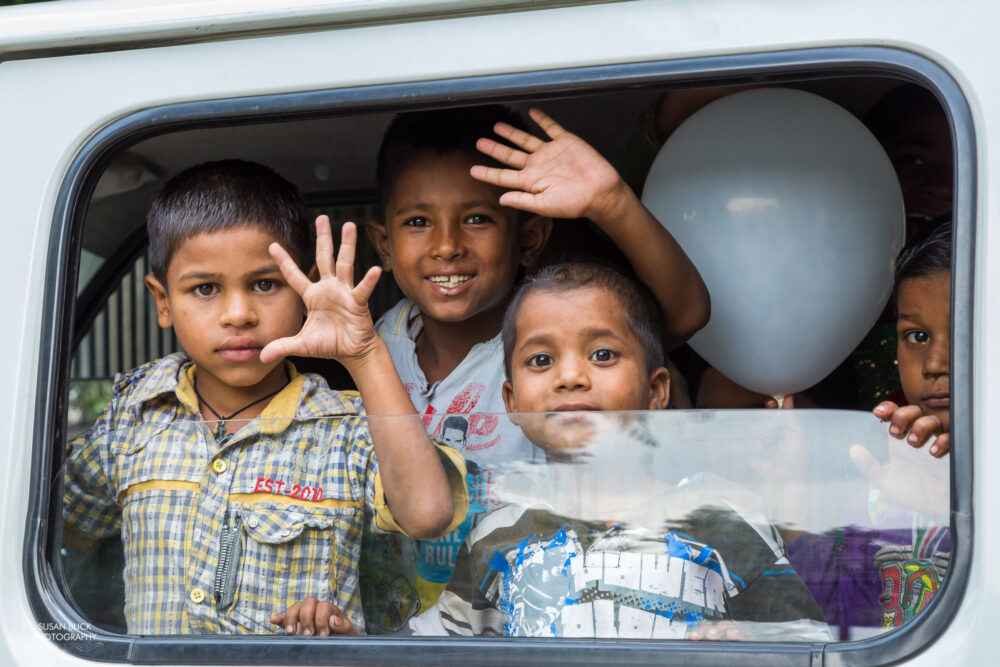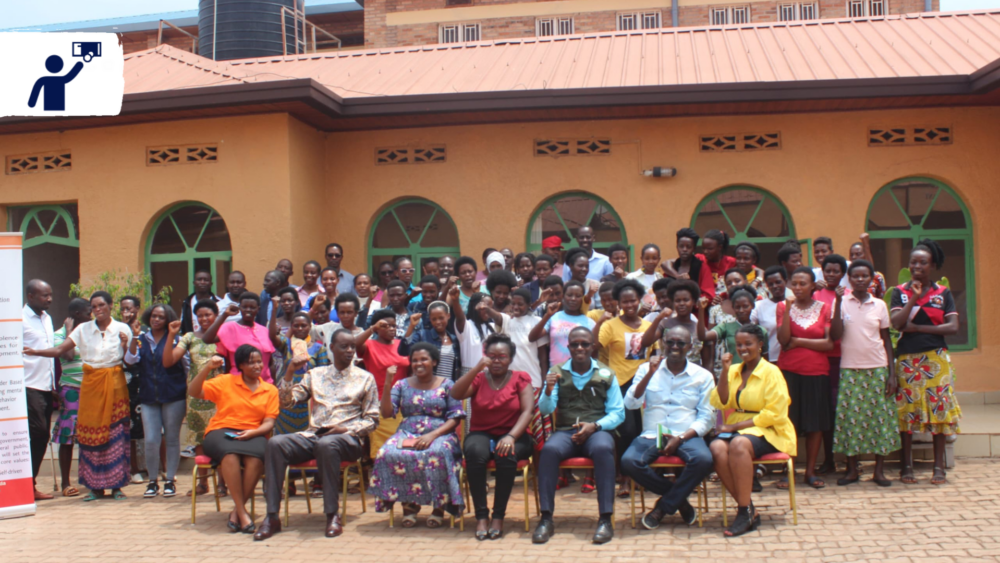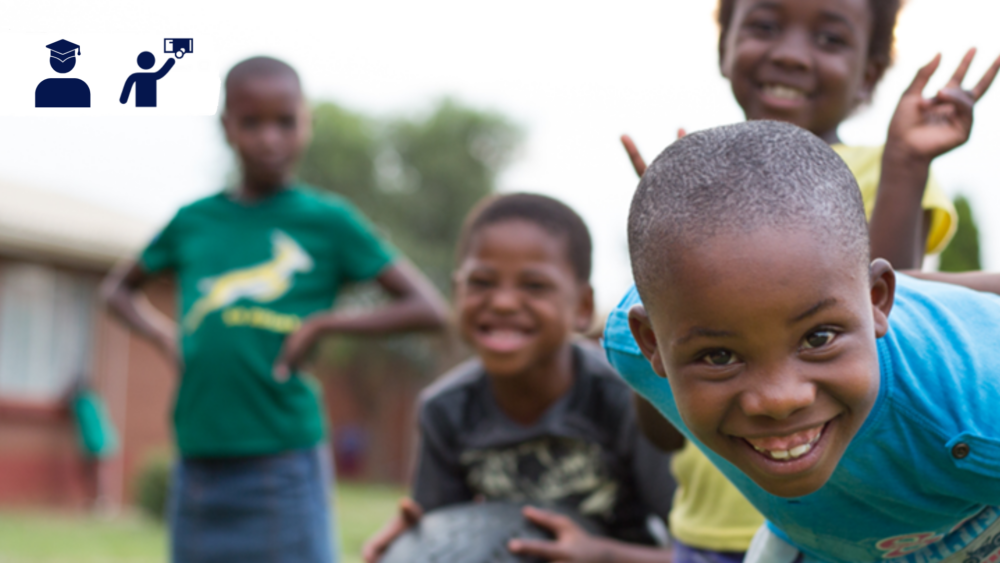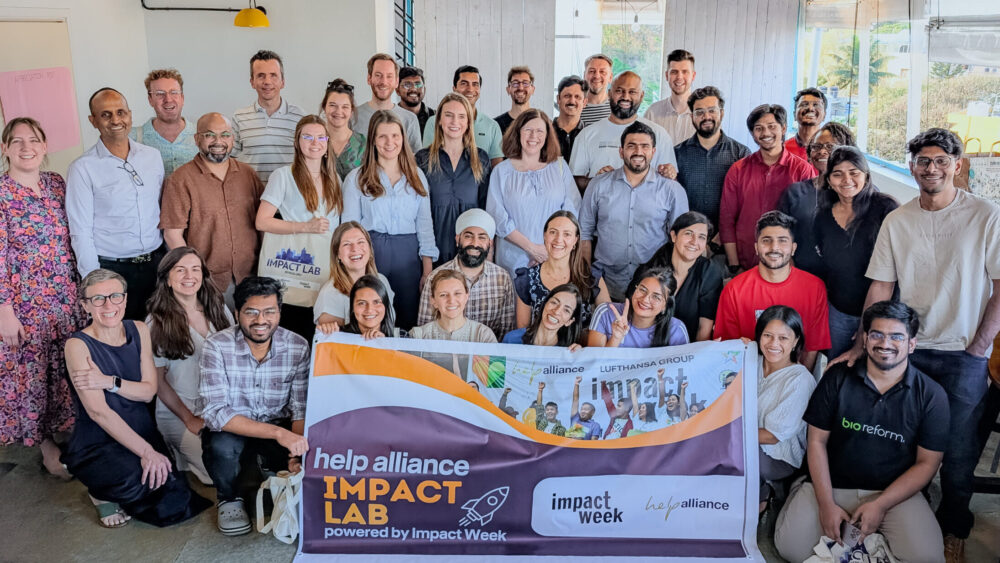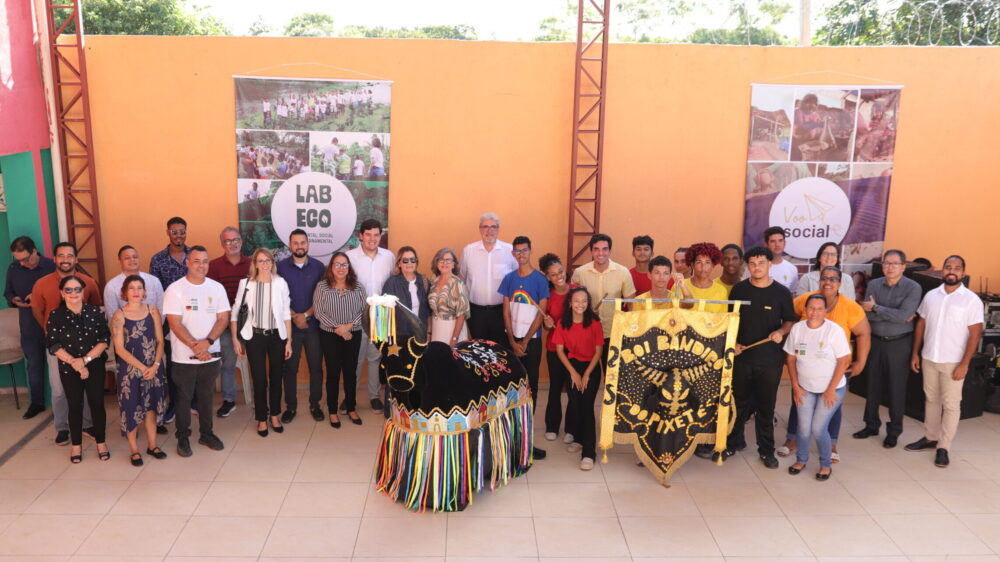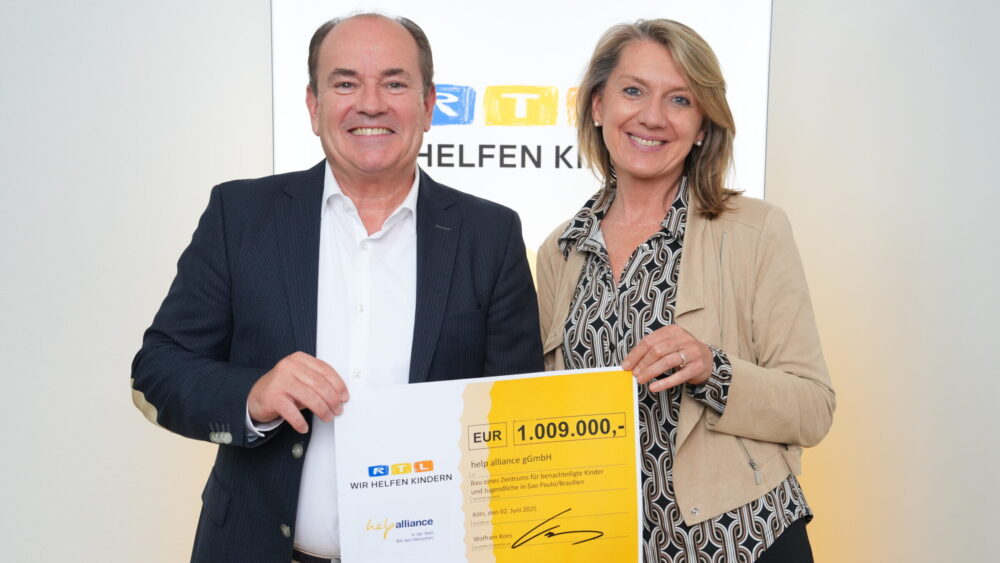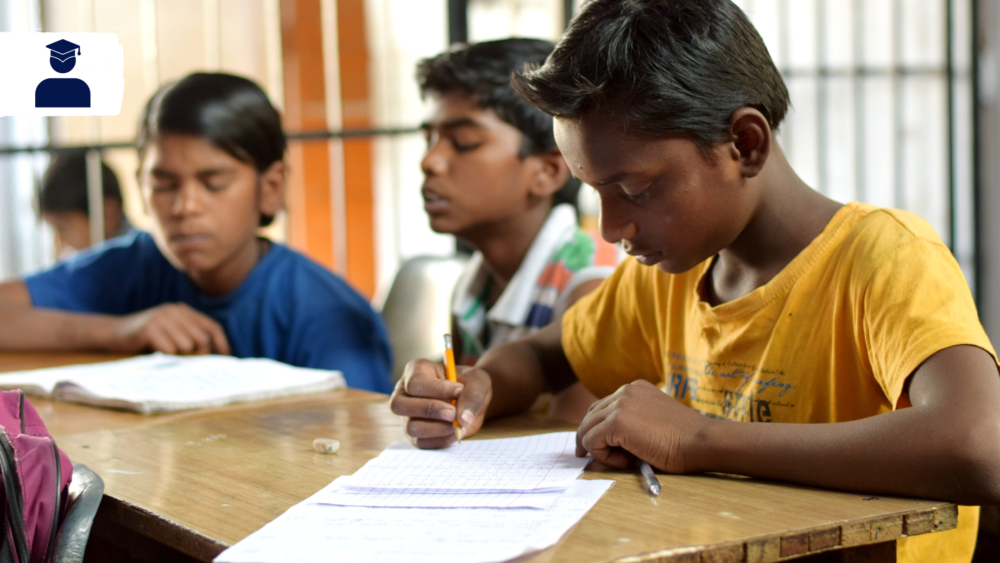
Protected learning, Dehradun
The project prepares street children with educational courses to attend a regular school and supports them on their educational path.
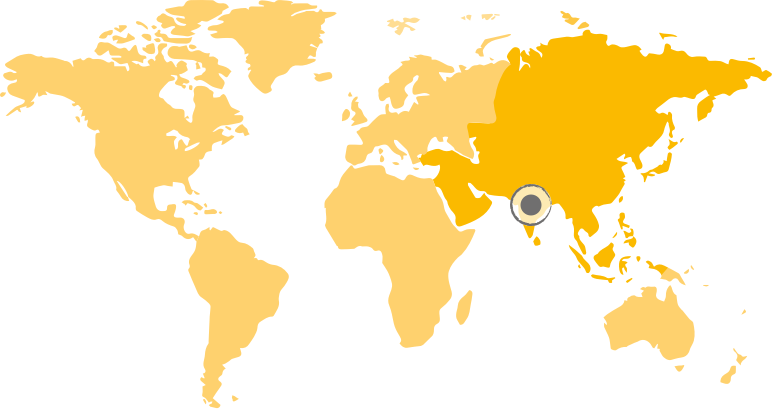
Project Background
Thanks to dynamic economic development, the world’s largest parliamentary democracy has achieved many successes in recent years. However, not everyone in the country is benefiting from the upturn in the emerging market; India remains marked by extreme inequality and around a quarter of the population lives below the poverty line. Children and women in particular are often the ones who suffer most. Although there are no official figures, it is estimated that the number of Indian children living on the streets is around 18 to 20 million. Most of them live in the big cities, which means that the number of street children in northern and central India is significantly higher than in southern India. On the one hand, there are the “classic” street children in India who no longer have any contact with their families because they have run away, been abandoned or are orphaned. On the other hand, there are those children who have come with their families from rural areas to the metropolises and now live in slums or on the outskirts of the cities, and thus in effect on the streets. Street and slum children mostly live in neglected conditions and under unhygienic conditions. In addition to malnutrition, they often suffer from diseases such as tuberculosis, typhoid or AIDS. In order to survive or to support their families, many children collect and sell garbage or do other odd jobs in which they are poorly paid and exploited. In addition, street and slum children often become victims of abuse and quickly become addicted to drugs or criminal gangs. Girls are particularly at risk; India is considered the most misogynist of all G20 countries. Within society, women are considered the weaker sex; they are often married early and have to stay at home – only 24% of women have paid jobs. In addition, women in India suffer above-average levels of violence and contempt.
Target Group
Like everywhere else in the world, the street and slum children in Dehradun, the capital of the state of Uttarakhand in northern India, live in miserable conditions. Society often meets these children with rejection, contempt or indifference. The children’s illnesses usually remain untreated. In addition to physical ailments, many children suffer from mental trauma as a result of exploitation, hunger, insecurity and maltreatment. The risk of being caught by beggar organisations is particularly high. These organisations, set up in mafia-like structures, do not even stop at mutilating the children – because amputations increase compassion and thus profit. In most cases, children who live and work on the streets or in slums are denied access to educational opportunities. This also deprives them of the chance to escape poverty and dependence and to lead a life in dignity.
Children from poor backgrounds who already attend school often do not find a suitable learning environment at home. They live in very confined spaces, without a table, let alone electricity. This often results in their academic performance lagging behind that of other children.
Project Goals
The philosophy of the project is that education is the foundation for further development and independence. In addition, the approach is that there is no child that cannot be reached – you just have to find the right approach. Thus, the declared goal is to give street children a perspective in life. For this purpose, social workers in the slums actively address street children in the first instance and make them aware of the offers of the educational institution. In this way 3,351 children and young people can be reached. In a total of 47 learning centres, the children then receive tutoring, learning support and advice. One of these learning centres is the New Haven Learning Centre financed by help alliance, which is attended by 200 children from playgroup to 8th grade. At the centre they receive tutoring in English, Hindi, math, science, social studies and computer science. The basic knowledge gained at the centre will later enable the children to attend a regular state school. After successful integration into the school system, however, the children continue to receive care and learning support. Young people who are already too old to attend a regular school are accepted into the Open basic education programme and taught at the centre. The education programme offers, among other things, computer courses to teach basic skills and thus facilitate later entry into the modern labour market. The project also works with Computer Aided Learning programs, as experience has shown that the combination of audio and visual as well as interactive components helps significantly to keep the children’s attention. Another declared goal of the project is to promote sports activities and creativity among the children. In addition, the children also receive medical care, regular and balanced meals and clothing. In the dormitory and lounge the children find protected places to rest and recover. The project particularly supports girls, who are most often barred from education due to social rankings and patriarchal social structures. Many of the girls are unwanted, orphaned or have been abused and are homeless. In order to prevent them from being exposed to many dangers on the streets without protection we built an environmentally friendly dormitory for 200 girls in the last years. In the safe environment and new “home” the girls learn to regain confidence and are physically strengthened by food and medical care.
What are you supporting
With your support you help us to finance the personnel costs as well as the costs for food, clothing and medical care for the children in the project.

